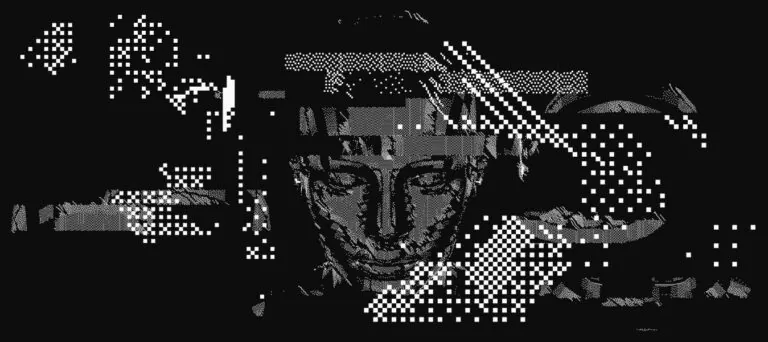
“For someone who has never meant anything to this world, I suddenly have a hard time leaving it. They say every part of the body has been part of a star. Maybe I'm not leaving, maybe I'm coming home." – Gattaca, the door to the universe – Andrew Niccol – 1997
In the very near and absolutely probable future, the families of Gattaca select the genetic heritage of their children, determining their appearance, character and life expectancy. And if there are couples in the world still determined to conceive children without resorting to any genetic manipulation, the fruit of their love is destined to live on the margins of society, considered inferior and labeled "invalid".
In Gattaca, the fictional place of the homonymous film by Andrew Niccol, the genetic heritage of each subject determines its fortune or failure. This is because in Gattaca companies select the best employees on the basis of the chances of success offered by their chromosomes while assigning the rest of the population to humbler and underpaid jobs.
The cynicism with which the Gattaca economy cuts the "genetically" weakest people out of the labor market is a metaphor that does not need a historical connotation: there have always been entire categories of people excluded from the labor market and insertion are often inconclusive.
It is precisely in this context of exclusion, in the real world, that the multinationals of the Gig economy enter, companies capable of constructing job offers open to an audience of subjects to whom the market does not offer other opportunities.
Gig economy companies aim to contain costs through a strategy that fully falls within the "No human in the loop" paradigm: that is, they operate through fully automatic digital platforms that replace the roles traditionally covered by accounting, human resources and administration. These platforms collect the willingness of workers to cover the role of rider, driver, psychologist or any other job on call and crosses them with requests from users, all without any human intermediation.
However, by lowering expectations on workers, wages and guarantees are also lowered: if on the one hand the gig economy offers a list of unexpected opportunities for a group of workers who are unable to enter the country's production cycle, it also imposes a control of quality of the work based on often opaque and unappealing automatic ratings.
The Gig economy is not the only "opaque" area in the world of services characterized by a high level of automation: for example, systems based on Artificial Intelligence are establishing themselves in the credit market capable of carrying out very accurate risk assessments and often transversal to traditional indicators. A user who intends to access credit, whose profile does not show any flaws, can be reported by an AI algorithm as potential insolvent without a logical explanation being provided.
This happens because the introduction of levels of automation does not always only serve to make processes more efficient; sometimes it has the objective of excluding the human from decision-making processes.
Whenever a bank refuses to grant a loan or a mortgage, its staff are unable to give any explanation. The operator is thus deprived of any importance while the end user, who is subject to the system's decisions, is not considered worthy of any explanation. Operator and user are destined to dribble a request for information which will remain an end in itself without leading to any satisfaction.
“Like others in my situation, I tried to work where I could. I must have cleaned half the restrooms in the country. Discrimination no longer depends on economic position or race. Discrimination is now a science.” – from “Gattaca, the door to the universe” by Andrew Niccol – 1997
Gattaca describes well the disorientation of the worker subjected to rules whose meaning he does not understand.
In Gig economy companies, workers are hired, remunerated, evaluated and fired in a completely automatic way by an IT platform that measures productivity based on an algorithmic analysis: a formula that puts together the speed with which the worker does his job , the level of satisfaction of the customers with whom it relates and other variables that cannot be known. Everything happens quickly and well, always in compliance with the contractual conditions and in compliance with the applicable laws.
Sebastian Galassi, a 2-year-old young man engaged in the work of Glovo rider in Florence, died on October 26, while carrying out his work regularly. Sebastian was XNUMX years old and worked to support his studies.
24 hours after his death, Sebastian was sent an automatic email from the delivery company informing him of his dismissal for non-compliance with contractual conditions.
No human operator of the Glovo platform had felt it necessary to record the raider's death or at least his exit from the project. After all, the platform has achieved such autonomy that it does not require any intervention to function at its best. And as humanly absurd as it may seem, what happened is absolutely normal: automation is adopted to increase productivity and it doesn't matter if values considered superfluous from the point of view of profitability remain outside.
Empathy, solidarity and respect do not belong to the sphere of efficiency.
Article of Gianfranco Fedele
An ophthalmoplasty operation using the Apple Vision Pro commercial viewer was performed at the Catania Polyclinic…
Developing fine motor skills through coloring prepares children for more complex skills like writing. To color…
The naval sector is a true global economic power, which has navigated towards a 150 billion market...
Last Monday, the Financial Times announced a deal with OpenAI. FT licenses its world-class journalism…